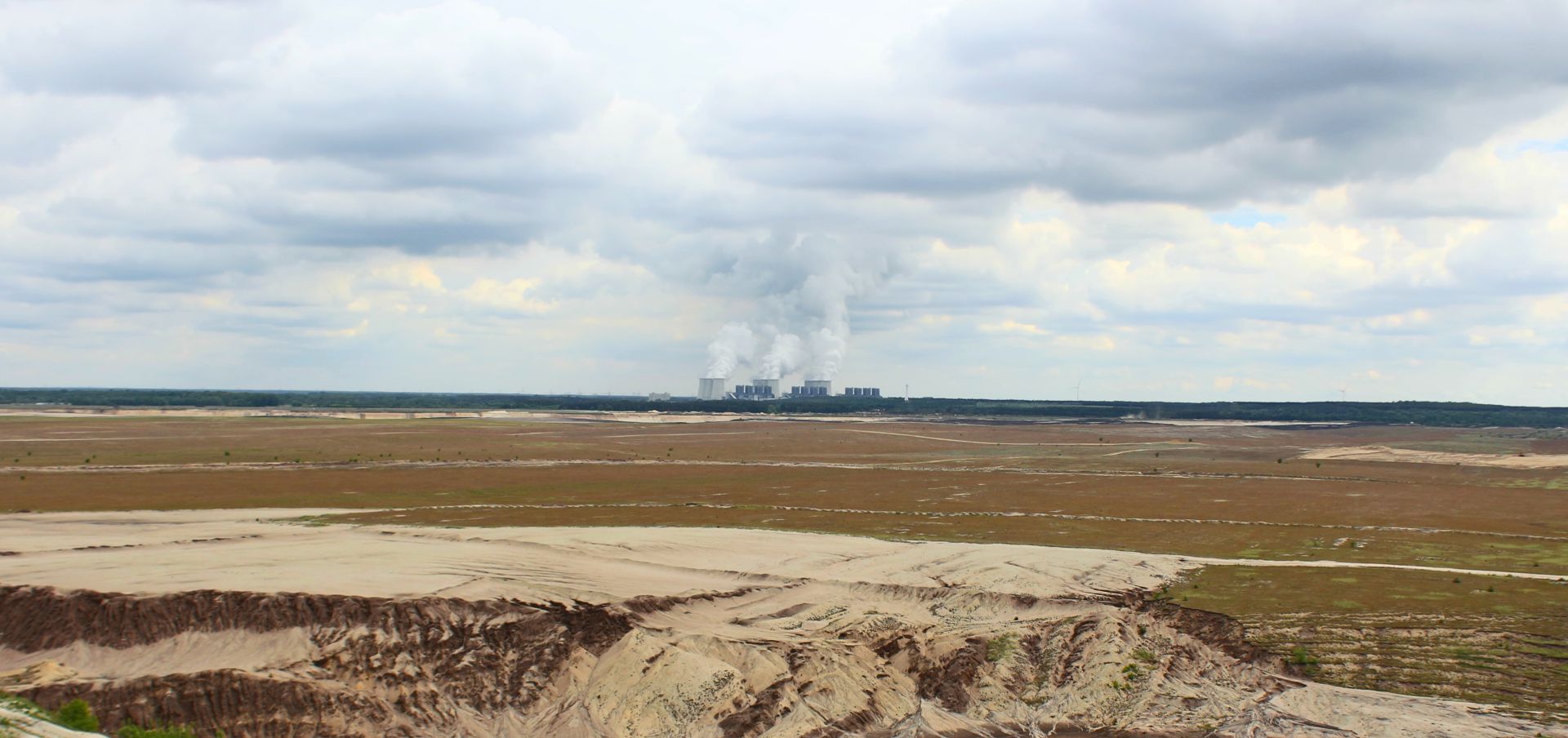Despite calls from French President Macron to implement additional carbon taxes, the German coalition government refuses to hold polluters accountable. “We say no to a price on CO2,” say CDU members, once again punting on climate change leadership. L. Michael Buchsbaum goes in-depth.

Coal power plants like Jänschwalde are partly responsible for Germany’s high emissions (Photo by Michael aus Halle, edited, CC BY-SA 3.0)
Established thirteen years ago, the European Union’s Emissions Trading System (EU ETS) is finally beginning to show its teeth—but some question how sharp those fangs really are.
The ETS is the world’s largest carbon market, including more than 11,000 power stations and industrial plants across the region. In an effort to speed up the transition towards renewables and ensure that polluters are held accountable, France’s President Emmanuel Macron has begun actively seeking partners to further decarbonize through the adoption of additional carbon taxes.
After setting France’s own coal exit, Macron has made a series of high-level international speeches calling for the establishment of a minimum carbon price, saying current levels are simply not enough to force investment in cleaner technologies (in April 2018, the EU carbon price was around €14 per tonne). His government believes decarbonization must be further underpinned by stronger financial market reforms. Recently, France set a price on carbon of €44 per tonne for petroleum products on its domestic market – a fixed price that will rise to €84 per tonne effective from 2022.
“But it won’t be sufficient,” Macron admitted. A carbon price floor on the European level “is the only way” to reach Europe’s long-term objective of becoming carbon neutral. “I know it is not easy. Everywhere, we will face resistance,” he said while vowing to defend the idea at the June EU summit. Acknowledging the possibility of collateral damage if adopted, he called for accompanying social policies for affected regions where jobs will be lost, along with assistance for companies involved the economic transformation.
Sadly, Macron’s appeals have seemingly been rejected by Europe’s largest economy. Germany’s new Grand Coalition between the center left SPD and conservative CDU continues to disappoint green energy advocates by slowing down the Energiewende.
Already embracing a tepid approach towards a German end of coal, the CDU-SPD alliance appears unwilling to embrace a greater carbon price mechanism or join Macron’s new coalition. The combined pressure has only exposed the fault lines between the two coalition parties on virtually all issues related to the Energiewende and climate change.
Presenting at April’s Berlin Energy Transition Dialogue, German Minister for the Economy and Energy, Peter Altmaier (CDU), seemed unmoved by France’s appeals despite supporting Germany’s official climate objectives, including a 60% reduction in CO2 emissions by 2030. From a back bench, however, the CDU’s Hermann-Josef Tebroke unambiguously rejected the French proposal crying: “We say ‘no’ to a price on CO2.”
Across the ideological divide, environmental minister Svenja Schulze (SPD) indicated support for the idea. Given that there is already a CO2 price in place for about half of Germany’s emissions as power plants and many industrial facilities are covered by the EU ETS, she believes it’s now “logical” to think about other ways of CO2 pricing within sectors “coupled” but not directly covered by the existing system such transport and heating.
Ironically, despite Brexit, in the UK a robust CO2 pricing system is actually hammering coal. The policy was adopted in 2013, and operates in combination with the EU ETS, establishing a “carbon price floor” (CPF) that functions as the minimum price fossil fuel producers must pay to emit CO2. When EU prices are lower than the UK’s price floor, electric generators have to buy credits from the UK treasury to make up the difference. King Coal’s market share in the UK has fallen 84 percent since the CPF was adopted. As more renewables have come online, increasingly uncompetitive coal plants have announced they’ll shut down in 2018 or convert to other fuel sources before 2025, when the UK’s own formal coal-exit begins.
Right now: Solar is generating more UK electricity than any other source (even gas) and zero coal on the system pic.twitter.com/PEJphJwVzd
— Simon Evans (@DrSimEvans) May 6, 2018
In contrast, Germany officially acknowledges that a CO2 price “can generally lead to a cost-efficient reduction of emissions,” but seems to have no intention of joining any additional European CO2 pricing systems other than the EU ETS. In an answer to a parliamentary inquiry submitted by the Green Party, the government said that the carbon pricing schemes used in other countries, such as the UK, would not be applicable in Germany due to “the respective national circumstances” of (coal) power production and demand.
Critics of Macron’s scheme are quick to point out that France, with its major reliance on nuclear energy, has already largely de-carbonized its electricity sector—though it too is adopting more renewables. Thus, higher carbon prices won’t cause much economic disruption domestically. The UK and other northern European nations that have also phased out coal could absorb an additional carbon tax as well. Germany, which is still largely coal-dependent, wouldn’t get off so easily.
However, a reformed EU emissions trading system, aligned with agreements made at the Paris COP 21 to keep global warming below 2C, could deal a knockout blow to EU coal. Carbon prices have already risen from a low of €4.38 per tonne last year to nearly €14 per tonne in May, and are set to double by 2021 to 25-€30 per tonne.
If this happens, even the most efficient coal and lignite power plants will be rendered unprofitable, claims author Mark Lewis, who recently joined Carbon Tracker from Barclays and Deutsche Bank. That is, unless flailing coal burners and feckless politicians adopt strategies to exempt coal, delaying its demise and putting a warming planet in ever-greater peril.